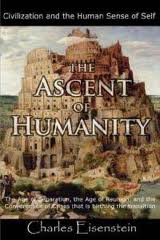“Underlying the Technological Program is a kind of arrogance, that that we can control, manage, and improve on nature. Many of the dreams of Gee Whiz technology are based on this. Control the weather! Conquer death! Download your consciousness onto a computer! Onward to space! All of these goals involve controlling or transcending nature, being independent of the earth, independent of the body. Nanotechnology will allow us to design new molecules and build them atom by atom. Perhaps someday we will even engineer the laws of physics itself. From an initial status of subordination to nature, the Technological Program aims to give us mastery over it, an ambition with deep cultural foundations. Descartes’ aspiration that science would make us the “lords and possessors of nature” merely restated an age-old ambition: “And God said to them, Be fruitful and multiply, and fill the earth and subdue it; and have dominion over the fish of the sea and over the birds of the air and over every living thing that moves upon the earth” (Genesis 1:28).
Yet a contrary thread runs concurrently through the world’s religious traditions, a recognition of the hubris of our attempt to improve on nature. Greek mythology has given us the figure of Daedelus, who arrogated to himself the power of flight in violation of ordinary mortal limitations. The power to transcend nature’s limitations is for the gods alone, and for his temerity Daedelus was punished when his son, Icarus, soared too high in his desire to attain to the heavens. In the Bible we find a similar warning in the Tower of Babel, a metaphor for the futility of reaching the infinite through finite means. Have we not, through our technology, attempted to rise above nature—sickness, uncertainty, death, and physical limitation—to attain to an immortal estate?”


